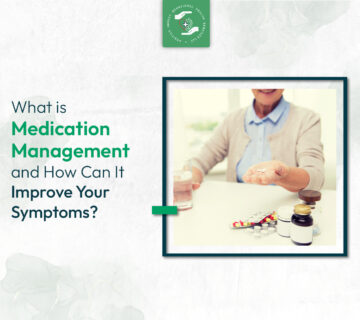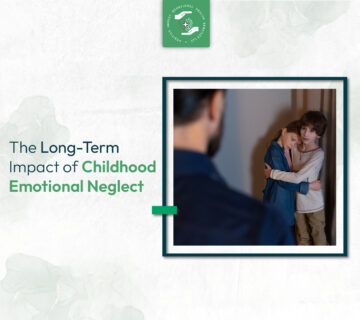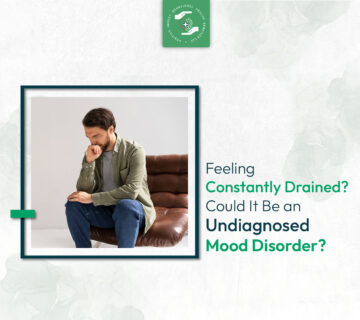Depression can be a challenging condition to navigate, and finding the right therapy can make a world of difference. In this blog, we’ll explore various aspects of depression therapy to help you understand its effectiveness.
What is Depression Therapy?
Depression therapy encompasses a wide range of treatments aimed at alleviating symptoms of depression, including counseling, medication, and lifestyle changes. A comprehensive understanding of depression therapy provides insight into how these methods attempt to alter brain chemistry, relieve symptoms, and improve quality of life. For further details, Positive Impact Behavioral Health explores depression treatment comprehensively.
These therapies aim not just to treat the symptoms of depression but to address its underlying causes. Depression therapy often includes a combination of different methods. For instance, talk therapy helps individuals explore their feelings and thoughts, allowing them to understand the root causes of their depression. This understanding is pivotal, as depression is not merely sadness but a complex interplay of environmental, psychological, and physiological factors.
Medication is often a component of depression therapy, especially for more severe cases. Antidepressants can help adjust the brain’s chemical balance, contributing to mood stabilization. According to Positive Impact Behavioral Health, around 80% to 90% of people with depression respond well to treatment, and each patient shows signs of improvement. This statistic highlights the success that can be achieved with the right therapeutic approach.
Types of Depression Therapy
There are several types of depression therapy, such as cognitive-behavioral therapy (CBT), interpersonal therapy (IPT), and medication-based treatments. Each method offers a unique way to address symptoms and underlying issues. For instance, CBT focuses on identifying and altering negative thought patterns that can lead to depressive feelings. This structured form of therapy has been shown to be particularly effective in treating depression.
Other well-known therapies include Dialectical behavior therapy (DBT) and mindfulness-based therapies, which promote self-awareness and emotional regulation. These therapies aid individuals in managing their emotions and stress in healthier ways.
Moreover, medication-based treatments often work hand-in-hand with psychotherapy. Antidepressants target the chemical imbalances in the brain that can contribute to depressive symptoms. It may take some time and experimentation to find the right medication and dosages, but the relief offered can be substantial when a suitable prescription is identified. Positive Impact Behavioral Health provides personalized plans to address mood disorders with the aim of enhancing overall well-being.
Factors Affecting the Effectiveness
The effectiveness of depression therapy can be influenced by various factors. The severity of the depression, the type of therapy used, and the therapist’s experience all play a role. Additionally, patient engagement and consistency in attending therapy sessions are crucial. A thorough assessment is typically conducted to determine the best therapeutic approach for each individual.
Individual differences such as personality traits, support systems, and co-occurring conditions also significantly impact therapy outcomes. It is essential for therapy to be tailored to an individual’s specific needs and circumstances. This personalized approach ensures better alignment with the patient’s lifestyle, increasing the likelihood of successful outcomes.
Furthermore, the patient’s belief in the therapy process and the therapeutic alliance—the relationship between therapist and patient—are critical determinants of success. Building a strong connection with a therapist can provide a sense of trust and security, which is particularly beneficial in the therapeutic journey.
Success Rates and Research
Research studies consistently demonstrate that depression therapies such as CBT and medication can be quite effective. For example, CBT often achieves success rates upwards of 60% to 70% in reducing depression symptoms. The key lies in matching the treatment to the specific type and severity of the depression.
Clinical trials have shown that when therapies are combined, such as medication with CBT, success rates can be even higher. This combination approach harnesses the strengths of both therapy types, addressing both the chemical and cognitive components of depression. Positive Impact Behavioral Health asserts that personalized and involuntary treatment adjustments are critical in ensuring the highest possible success rates for each patient.
Moreover, ongoing research into therapies like interpersonal therapy continues to uncover new insights and improve efficacy. Interpersonal therapy, for instance, focuses on improving relationships to alleviate depressive symptoms, particularly when interpersonal issues are prominent triggers for the individual’s depression.
Personalizing Your Therapy Approach
Customizing therapy to fit personal needs, preferences, and lifestyle can increase the likelihood of successful outcomes. This personalization is especially crucial given the diversity of experiences among those with depression. No two cases are identical, and treatment should reflect that uniqueness.
Positive Impact Behavioral Health supports the notion that exploring different therapeutic modalities helps patients discover the most effective strategies suited to them. Whether it’s entering a supportive therapy group or engaging in one-on-one counseling, finding a rhythm that complements your life can make therapy more effective.
Integrating lifestyle changes such as improved nutrition and regular physical activity can bolster the effects of depression therapy. These changes, coupled with a personalized therapy plan, work synergistically to counteract depressive symptoms and enhance overall mental health.
Ultimately, the goal is to empower individuals to recognize and understand their personal triggers and navigate them effectively. This empowerment ensures individuals not only manage their current depression but also build resilience to handle future challenges. If you or someone you know is struggling, reach out to Positive Impact Behavioral Health for tailored support and a more fulfilling life journey.
Is Depression Therapy Worthwhile?
Depression therapy, when chosen and applied effectively, can significantly improve the quality of life for those suffering from depression. It’s important to consult with mental health professionals to find the most suitable therapy for individual needs, ensuring the best possible outcomes.






No comment